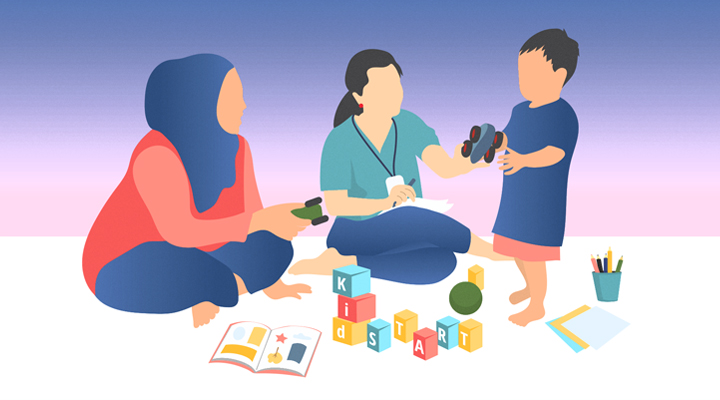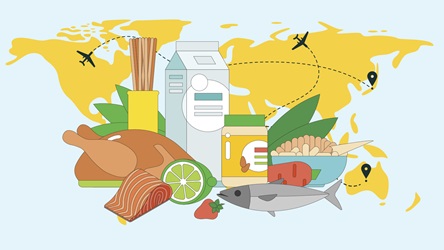Singapore Agenda in Focus: Renewing a Society of Opportunities for All

In Singapore’s earlier years of development, economic growth was high and incomes rose for many. Standards of living increased, and the next generation had more opportunities to do better than their parents.
As Singapore’s economy matures, and economic growth slows, new challenges have emerged that make it tougher to sustain this advancement for all. Our economic progress has created prosperity for many, but over time has also seen different levels of resources going to families of different incomes and backgrounds.
Given that their families have greater access to resources, children from more affluent families today tend to do better in school compared to those from lower-income families, and this has given rise to a new concern that disadvantaged children today have increasingly unequal starting blocks, which will eventually create unequal outcomes over time.
A Changing Landscape
In many advanced countries, including Singapore, the fast pace of technological advancements and globalisation have presented new economic opportunities. But these developments have also widened the wage gap between occupations, which could enlarge the difference in outcomes for higher-skilled workers and other groups.
The global COVID-19 pandemic risks exacerbating inequality around the world and in Singapore, with its effects felt differently across different segments of society.

Inequalities in income and wealth are inevitably present in a free and open market economy like Singapore’s. But if left unchecked, these trends can combine to cause less advantaged Singaporeans to fall behind, and feel that the opportunities available can only be accessed by a privileged few.
As society’s needs and views become more diverse, such situations of inequality will make it easy for new fault-lines to emerge between the haves and have-nots, or the will-haves and the won’t-haves.
The Shifts We Need To Make
The government’s approach to improving equity has been to lift the bottom, making Singapore a society of opportunities for all, at every stage of life.
To do this, it is important to ensure that everyone, regardless of their background, is able to fulfill their potential and progress well throughout life through education, skills and good jobs. This also means boosting support for those who start life at a disadvantage to keep social mobility alive and lessen inequalities over time.
.jpg)
-
For a Child’s Early Years:
- We are increasing preschool capacity so that there are enough places for every child aged three and above.
- Subsidies have been enhanced to make preschool more affordable. For example, a low-income working family with a child enrolled in full-day childcare in an Anchor Operator preschool pays $3 per month after subsidies.
- Support is also given to low-income families to help achieve good health, social and child development outcomes through KidSTART programmes.
- Read more about the KidSTART programme below.
-
For a Child’s Years in School:
- We resource all schools well, with those with greater needs being given additional resources for more targeted interventions.
- During the recent circuit breaker, our schools and teachers extended additional help to students from less advantaged backgrounds and those at risk.
- This is part of our broader push to provide more support to students from disadvantaged backgrounds, starting from their earliest years of childhood.
- Read more about the UPLIFT programme below.
-
In the Working Years:
- Along the way in life, many Singaporeans will face setbacks, whether economic or social.
- The government will strengthen efforts to build up resilience among all Singaporeans and extend temporary support for them to recover faster and minimise the ill effects on their families.
- For example, to help save jobs and create new ones, the government has introduced the Jobs Support Scheme and the SGUnited Jobs and Skills Package in response to the global COVID-19 pandemic.
A Good Start For Every Child

“Parents are the children’s first teachers,” says Ms Lee Wei Qi, an officer from the KidSTART programme by the Early Childhood Development Agency (ECDA).
The KidSTART programme aims to help children from low-income families have a good start in life. Research has shown that the experiences in a child’s early years can significantly influence physical, cognitive and social development. These experiences have a lifelong impact on developmental, social and health outcomes.
With parents playing such a big role in their child’s early years, parents must have the skills and knowledge to nurture their children effectively.
As part of the Home Visitation team in KidSTART, Wei Qi goes to the homes of KidSTART families to empower parents in caregiving and enhance their knowledge and skills to better nurture their children’s development. For instance, she has shared with parent Mdm Nurhidayah Binte Abdullah about the benefits of purposeful outdoor play for children, the need to reduce screen time, and how to engage her children in conversations during daily care routines using evidence-based techniques.
Following Wei Qi’s visits and advice, Mdm Nurhidayah has seen her two younger children become more physically active and articulate.
Wei Qi also provides resources such as games, songs and rhymes that parents can use to improve their interactions and attachment with their children. If the families in the KidSTART programme require help in social and financial areas, they are also connected to community partners such as Family Service Centres and Social Service Offices.
KidSTART programmes
Since 2016, KidSTART has benefited more than 1,000 children living in Kreta Ayer, Bukit Merah, Taman Jurong, Boon Lay and Geylang Serai. ECDA will expand the programme to reach another 5,000 children over the next three years, starting with Woodlands and Bedok.
Home Visitation
A partnership between ECDA and two public hospitals, this programme has qualified professionals making regular home visits to parents or caregivers, to support pregnant mothers before birth and up till the child is three years old. Parents learn skills and practical knowledge for child’s growth, health and nutrition. In Group Connect activities, parents also receive peer support and reinforce their learning from the home visits.
Supported Playgroups
These are weekly community-based playgroup sessions by ECDA-trained facilitators, for parents or main caregivers and their toddlers aged 1 to 3 years old. Parents and caregivers build up skills in child development and parent-child bonding through structured, purposeful play.
Enhanced Support to Preschools
Selected preschools get additional resources to improve the support for parents, and to improve the child’s school readiness. This may include addressing poor preschool attendance and providing referrals to other support programmes.
To learn more about KidSTART and how you can support the programme, visit the KidSTART webpage.
Student Care And Support Programmes
To strengthen support for students from disadvantaged families and enable them to achieve their potential, the Ministry of Education (MOE) set up an inter-agency taskforce (known as Uplifting Pupils in Life and Inspiring Families Taskforce, or UPLIFT) in 2018.
A key focus area of UPLIFT is strengthening after-school care and support for students, especially for those who lack conducive home environments to return to after school.
Providing these students with a structured and supervised after-school environment gives them the opportunity to develop good habits, routines and skills that will help them succeed in life.
This is done through school-based student care centres (SCCs) in primary schools, and after-school programmes in secondary schools, such as GEAR-UP.
What is a school-based SCC?
An after-school centre that serves as a platform for schools to provide targeted programme interventions, aimed at strengthening the resilience and socio-emotional well-being of students. As of 2020, every primary school has an SCC. A total of 27,000 students are enrolled in school-based SCCs.
What is GEAR-UP?
An after-school programme that includes mentorship from trusted adults, peer support and interest-based activities to engage the students. It has benefitted more than 3,000 students so far, and GEAR-UP will be present in 120 secondary schools by 2020.
The after-school support can go beyond SCCs and GEAR-UP programmes in schools, and be complemented by community-based programmes, such as academic coaching, drop-in services and parenting support.
However, schools may not be aware of the community programmes available. Likewise, community organisations may not know which students and families need help.

Community Connections
Such gaps in information and coordination would require the help of a coordinator who has a good understanding of the local community resources and students’ needs, and can match them to each other. For this reason, the MOE worked with the Ministry of Social and Family Development (MSF) to launch an UPLIFT Community Pilot.
For a start, a Town-Level Coordinator (TLC) has been stationed at three Social Service Offices in Boon Lay, Kreta Ayer and Woodlands. The coordinator will help to forge partnerships between schools and the community, including corporate groups, to support disadvantaged students.
For example, a school can identify a disadvantaged student who exhibits early signs of absenteeism and refer him/her to a TLC, who can then recommend a community-based programme that suits the student’s needs and interests. An important component of the pilot is family befriending, where volunteers can visit and befriend target families to offer parenting support and refer them to community resources.
In this way, the resources of schools and the community are pooled together to better support vulnerable families. More than 300 students are expected to benefit from this pilot.
Read about what an UPLIFT Town-Level Coordinator does.
What You Can Do
In the spirit of SGTogether, everyone has a role to play in strengthening partnerships among public agencies, civil societies and businesses to build a society of opportunities for all.
By encouraging volunteerism and philanthropy, the government will also strengthen the role of the community in reducing the effects of unequal outcomes.
Public officers have plenty of opportunities to contribute. Sign up to serve as a volunteer with the Social Service Offices or with KidSTART, become an UPLIFT Family Befriender and discover many more ways to support fellow Singaporeans at sgunited.gov.sg.
This topic is part of a series of features on the Singapore Agenda, one of the key priorities for the Public Service to Build Our Future, together with Public Sector Transformation and Singapore Together.
- POSTED ON
Sep 1, 2020
- TEXT BY
Tuber
SGPA
- ILLUSTRATION BY
mushroomhead
-
Deep Dive
Strengthening Singapore’s Food Security









